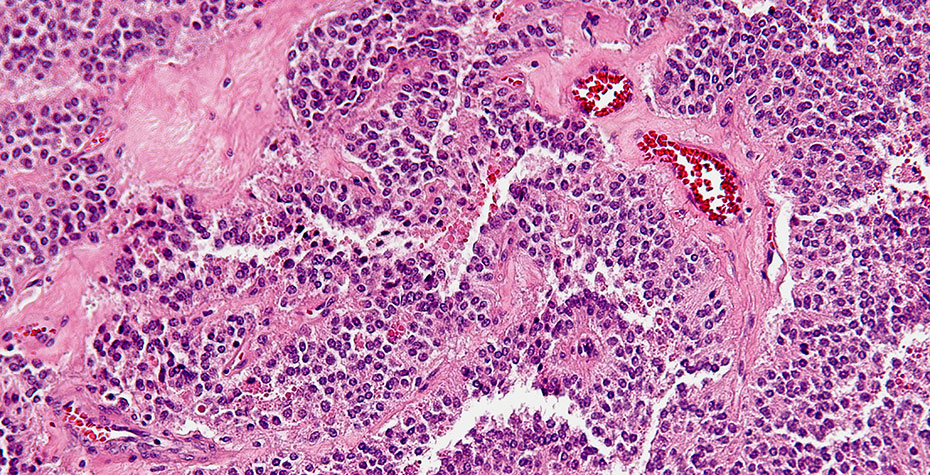Neuroscience Major Drawn to Organic Chemistry Works on Compounds That Target Cancer

“I was initially drawn to the field of organic chemistry, and particularly the synthesis of novel molecules, because molecules are the building blocks of life,” says Katie Eyring ’14, a chemistry major. “Trying to understand how molecules come together and interact with one another is still the most exciting work I have done in my academic career. Natural products are extraordinarily structurally diverse and complex--they challenge our understanding of what’s possible and they challenge our understanding of biology, in general.”
Eyring, from Silver Spring, Md., first took organic chemistry in her sophomore year with Assistant Professor of Chemistry Dora Carrico-Moniz. “Her enthusiasm for organic chemistry and her students really struck me and piqued my interest in the field,” she says. Eyring joined the lab and developed her own technical skills, learning more about the synthesis of organic, nature-based compounds. “We study compounds that are naturally good at killing cancer cells,” Eyring explains. “For instance, Taxol, a widely used drug in the treatment of many forms of cancer, is derived from a tree native to the Pacific Northwest. We [in the Carrico-Moniz lab] both synthesize these compounds and try to figure how they do what they do.”
“As soon as I expressed interest in completing an honors thesis, Dora was wonderfully supportive,” says Eyring. “Dora allowed me independence and freedom as we designed the project, while offering me guidance and direction throughout the year.” Her senior thesis project was titled “The Synthesis and Evaluation of a Series of Novel Isoprenylated Coumarins as Potential Anti-Pancreatic Cancer Agents.” She focused on the synthesis and evaluation of a novel series of compounds that specifically target pancreatic cancer cells. Eyring made slight variations over the course of the year to the structure of her compounds to determine what elements were important for toxicity against the cancer cells.
The neuroscience major graduated cum laude, a nominee to the science research society Sigma Xi, and with honors in the major earned the Hubel Thesis Prize. This summer she will be working at the Novartis Institutes for Biomedical Research, and in the fall begins a Ph.D. program in neuroscience and physiology at New York University.
“This project was the first time that I worked on research that I could call my own,” she reflects. “The process of discovering a project, exploring the relevant literature, and identifying my niche in the field was totally exhilarating. It was like a conversation with the scientific community at large. Even when I encountered difficulties, the troubleshooting process taught me something new. Every time I talk to someone about the project, I learn something new... I see a new way of approaching a problem. Scientific research is a stimulating and never-ending endeavor. I am always surprised at how much there is to learn and how interconnected different projects can be.”
Taking a cue from the Huffington Post’s College Thesis project, The Daily Shot will continue its own series to feature theses and other projects by Wellesley seniors, exemplifying (just a portion of) the range, creativity, and scholarship of the class of 2014.
